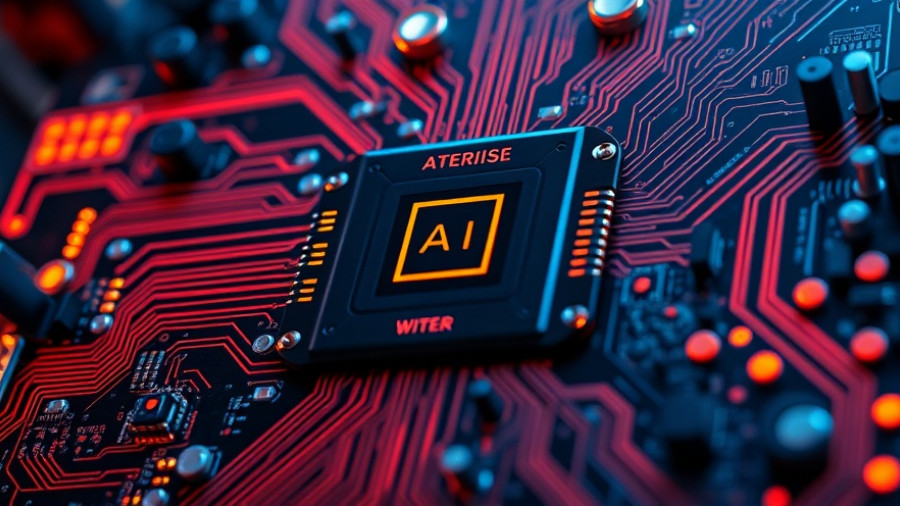
Revolutionizing Heart Health with AI and Quantum Technology
In recent years, cardiovascular diseases have consistently ranked as the leading cause of death worldwide, sparking urgent calls for innovation in diagnostics and treatment. Enter Hailey Trier and SandboxAQ, where cutting-edge artificial intelligence and quantum technologies meet to create groundbreaking advancements in heart health.
In 'From Stargazing to Saving Hearts: Hailey Trier’s AQtive Mind', the discussion dives into innovative healthcare technologies, exploring key insights that sparked deeper analysis on our end.
The Brain-Heart Connection: Understanding the Importance
Trier's journey from a young stargazer to a neuroscience graduate highlights an intriguing intersection: the brain and the heart. Both systems communicate intricately, impacting stress regulation and overall health. With approximately 20% to 60% of myocardial infarction cases eluding traditional electrocardiogram (ECG) detection, the need for innovative approaches is clear. This is where her work with heart rate variability and diagnostic technologies comes into play.
Magnetocardiography: A Quantum Leap in Diagnostics
Unlike ECGs that rely on electrical signals distorted by body tissues, Magnetocardiography (MCG) assesses the magnetic fields emanating from the heart. This non-invasive method captures cleaner, more accurate data conducive to timely diagnostics. SandboxAQ aims to revolutionize this technology by developing a portable MCG device that can be integrated into emergency rooms, eliminating the cumbersome requirement of magnetically shielded environments.
The Role of AI in Enhancing Diagnostic Accuracy
The unshielded MCG device, powered by AI and Large Quantitative Models (LQMs), addresses the critical issue of signal noise in hospitals. By leveraging AI to filter out irrelevant magnetic interference, Trier’s team could vastly improve the accuracy of heart condition diagnoses. The ultimate goal? To provide immediate and actionable insights for patients experiencing chest pain, potentially saving lives.
Looking Ahead: Transforming Medical Emergencies
As they strive for more effective healthcare interventions, the marriage of AI and quantum technology offers remarkable potential. By swiftly diagnosing heart attacks in emergency settings, this integration can reduce unnecessary waiting times and enhance patient care. With innovative approaches like MCG, and the persistent advocacy for change led by figures like Hailey Trier, there's hope that the stubborn statistics surrounding cardiovascular diseases could shift dramatically in favor of a healthier future.



Write A Comment